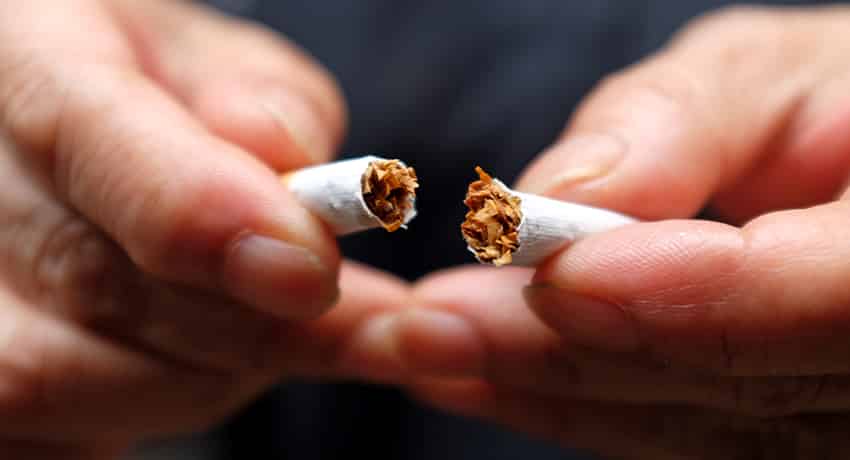Between smoking when you’re happy, sad, or even just passing the time, the ritual of it quickly becomes associated with most aspects of your life. The chemical present in cigarettes, called nicotine, acts as both a stimulant and depressant. With its addictive properties, kicking the habit to the curb is sometimes harder than most people anticipate.
In recognition of National No Smoking Day on Wednesday, March 8, Michael F. Weaver, MD, addiction medicine specialist at UT Physicians, breaks down why it’s so hard to smoke your last cigarette and provides available resources for those trying to quit.
Quitting can be tough … but still possible
Those who desire to stop smoking have more than likely tried multiple times in the past. When you remove the consumption of nicotine, it’s not long before symptoms of withdrawal begin.

“People can feel irritable, depressed, or even experience headaches once nicotine withdrawal kicks in,” said Weaver, professor and medical director at the Center for Neurobehavioral Research on Addiction for the Louis A. Faillace, MD, Department of Psychiatry and Behavioral Sciences at McGovern Medical School at UTHealth Houston.
Fortunately, these symptoms are short-lived and become less noticeable around the 10-day mark. As for deciding when it is best to quit, Weaver says there’s never a bad time.
“If you’ve been smoking for decades or a few years, there are always benefits to quitting,” he said.
According to the U.S. Centers for Disease Control and Prevention, some advantages to no longer smoking are a lower risk of cancers, cardiovascular disease, COPD, and poor reproductive health outcomes.
Help is available
For individuals looking to become tobacco-free, Weaver stresses this is not something you have to do on your own.
“There are a ton of great apps and websites that are free and can help you,” he shared. “And if you need a little more assistance, pharmacotherapy works wonders.”
Pharmacotherapy includes both over-the-counter and prescription medications that can ease symptoms of nicotine withdrawal, such as gums, patches, or pills.
A great online resource recommended by addiction specialist experts is smokefree.gov. Created by the National Institutes of Health, this website includes tools and tips for people throughout their journey to becoming non-smokers.
“Help is readily available out there for people who are even considering the idea,” said Weaver. “Go online or even talk to your primary care doctor. It’s never too late.”



